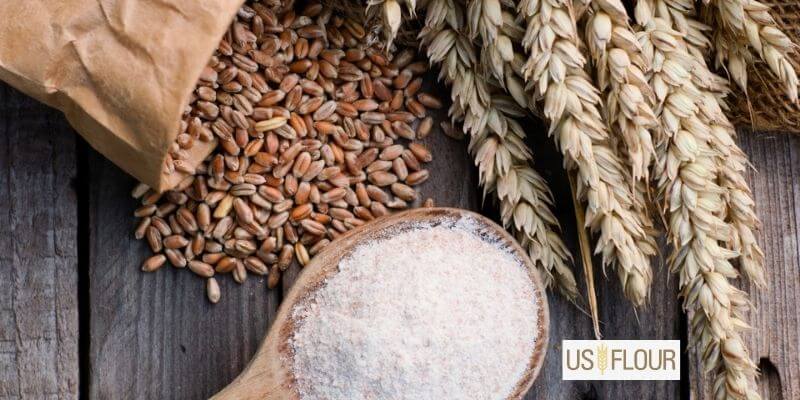Saddle the health benefits of durum wheat

Durum wheat is a type of wheat that you might already be eating. This is because it is used in many types of food, like bread, noodles, bulgur, couscous, and pasta. You might need to learn about the nutritional content and health benefits of eating this type of wheat.
What is durum wheat?

Durum is a popular variety of spring wheat used in making semolina. It is high in gluten and protein, making it suitable for making pasta and bread.
The endosperm of durum wheat is ground to make semolina flour. As a result, the flour is pale yellow and coarse.
Nutrition of durum wheat
Durum wheat contains nutrients in different proportions. The nutrition in 100 grams of durum wheat consists of the following:
- 13.7 grams of protein
- 144 milligrams of magnesium
- 2.5 grams of fat
- 3.5 grams of iron
- 339 calories
- 34 milligrams of calcium
- 508 grams of phosphorus
Health benefits of durum wheat

There are many important nutrients in durum wheat. Durum wheat contains fiber, minerals, vitamin E, the vitamin B complex, and trans and saturated fats. Sodium and cholesterol are also present in low concentrations in durum wheat. Making durum wheat products a part of your daily diet offers a more balanced intake of essential nutrients.
Below. are some of the health benefits of durum wheat:
1. Diabetes type 2 prevention
Products made from durum wheat should be the first choice for people with diabetes. This is due to its low glycemic index. Unlike whole wheat pasta, which has a glycemic index of 68, durum wheat pasta has a glycemic index of 47. Due to this, it takes more time for durum wheat to release glucose into the blood.
Additionally, durum flour absorbs at a slower rate and is more digestible when compared to soft wheat flour. Similarly, this lessens the increase in blood sugar after meals and enables people with diabetes to control their blood sugar levels effectively.
2. Enhances weight loss
Another health benefit of durum wheat is that its products digest slowly. This gives you the feeling of being full and prevents you from overeating. Consuming a bowl of spaghetti or slices of bread made from durum wheat provides a different level of satisfaction.
Also, bread contains quickly digestible starch that can be quickly emptied from your stomach after the needed part is absorbed into your bloodstream. You can reduce your food intake when you select products made with durum flour compared to those produced with refined white flour. This, as a result, can help improve weight loss.
3. Improves kidney health
It is vital to have proper potassium and sodium levels in the body. This helps prevent chronic renal disorders and keeps excretory organs healthy. Due to too much salt intake, our diets are already low in potassium and high in sodium.
Also, you can increase your consumption of whole foods and foods rich in potassium to get ready for low metallic element levels. The potassium content of durum wheat ensures that potassium in the blood remains properly and helps keep your excretory organs healthy.
4. Improves heart health
Durum wheat is made up of sodium and potassium. The sodium content in it is quite low. Also, durum has 186 mg of potassium per 100 grams. Potassium is essential to the proper function of the heart.
Furthermore, potassium helps maintain a standard electrolyte balance between body fluids and cells. It also lowers blood pressure, which maintains a regular rhythm in the gut. Durum wheat also contains antioxidants, which protect the heart from infections.
5. Promote healthy bones
Durum is a rich source of essential minerals. 47 mg of magnesium and 17 mg of calcium are present in 100 grams of durum flour. Calcium is heavily present in the bones, and it helps improve the bones’ density. Similarly, magnesium enhances the firmness and strength of the bone.
Furthermore, sufficient metal is needed for the nerve’s conductivity and the body system’s solution balance. Meanwhile, zinc, a trace element, play important roles in the central nervous system throughout the lifespan, from early brain development in infants to maintaining brain function in adults.
Generally, the metals, zinc, and phosphorus present in durum are important to maintaining a well-functioning body system.
6. Rich in antioxidants and iron
Antioxidants and iron are other essential minerals present in durum. In our bodies, antioxidants function as inhibitors to prevent harmful oxidation and damage to DNA and cell membranes. On the other hand, iron is required by the body to keep you from becoming exhausted more frequently than necessary.
A lack of iron can lead to anemia, characterized by a low level of red blood cells. Since durum wheat semolina is made from plants, it contains nonheme iron. Non Heme iron is not absorbed by your body, as well as heme iron, which is commonly found in seafood, poultry, and meat.
It is possible to increase the amount of nonheme iron your body absorbs if you add foods rich in vitamin C to your semolina dishes. Ascorbic acid, a component of vitamin C, raises iron levels.
7. Improves digestive health
Durum wheat is rich in fiber. The benefits of a diet rich in fiber include the following:
- Reduces the risk of colorectal cancer
- Reduces cholesterol
- Control blood sugar levels
- Help with bowel movements
Uses of durum wheat
Durum wheat is used in different products because of its nutritional benefits. Below are some of its common uses:
- Used to make semolina
- It is part of many soups, pastries, puddings, stuffings, and gruels.
- Used to make pasta products such as macaroni and spaghetti.
Conclusion
Durum wheat is a type of wheat that contains many essential minerals that are beneficial to the body’s system. Introducing products made of durum wheat to your daily diet can help improve your heart functions, enhance weight loss, and make your bones stronger and healthier, among other things.
 Power to The Bakers.
Power to The Bakers.